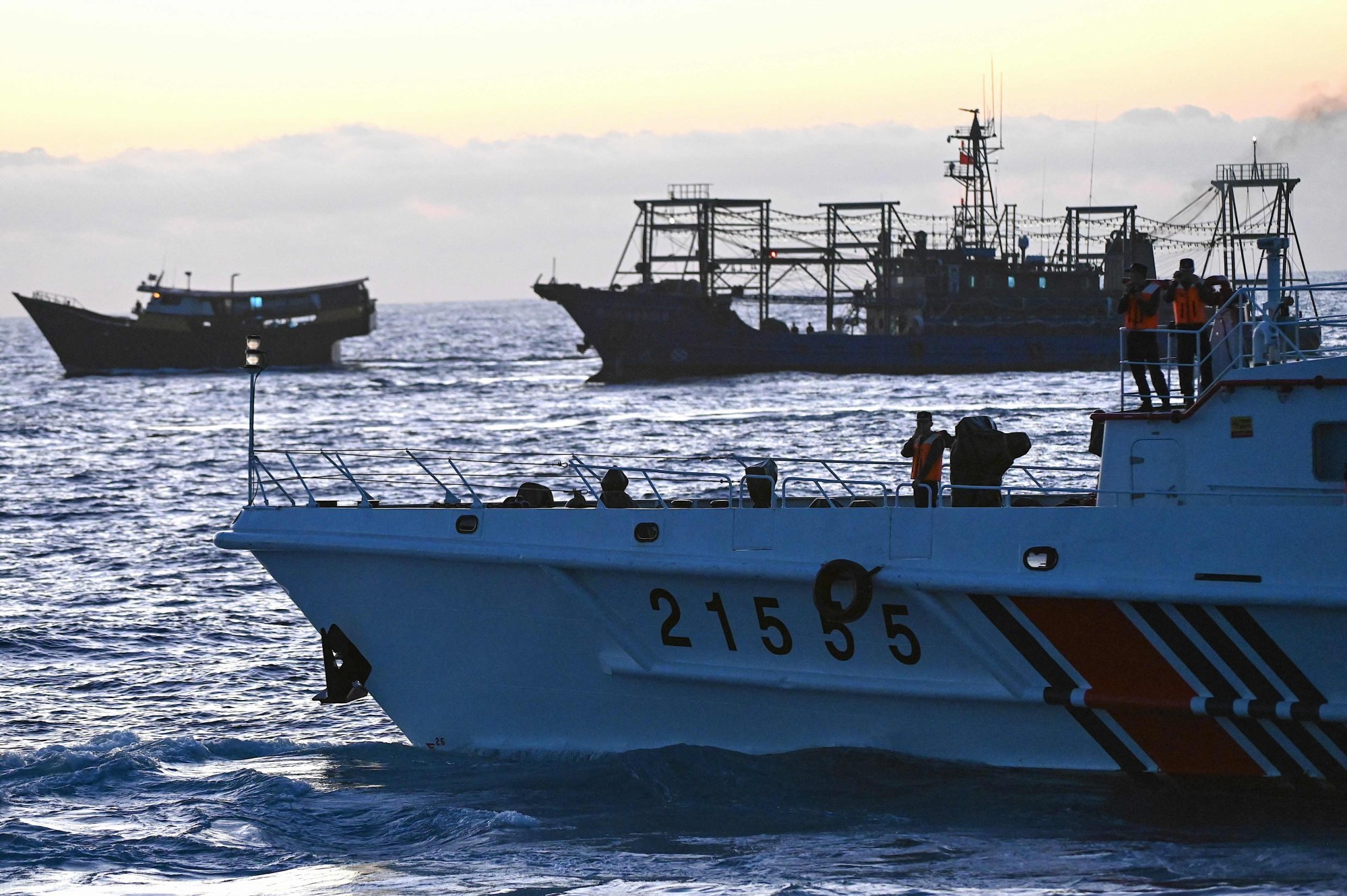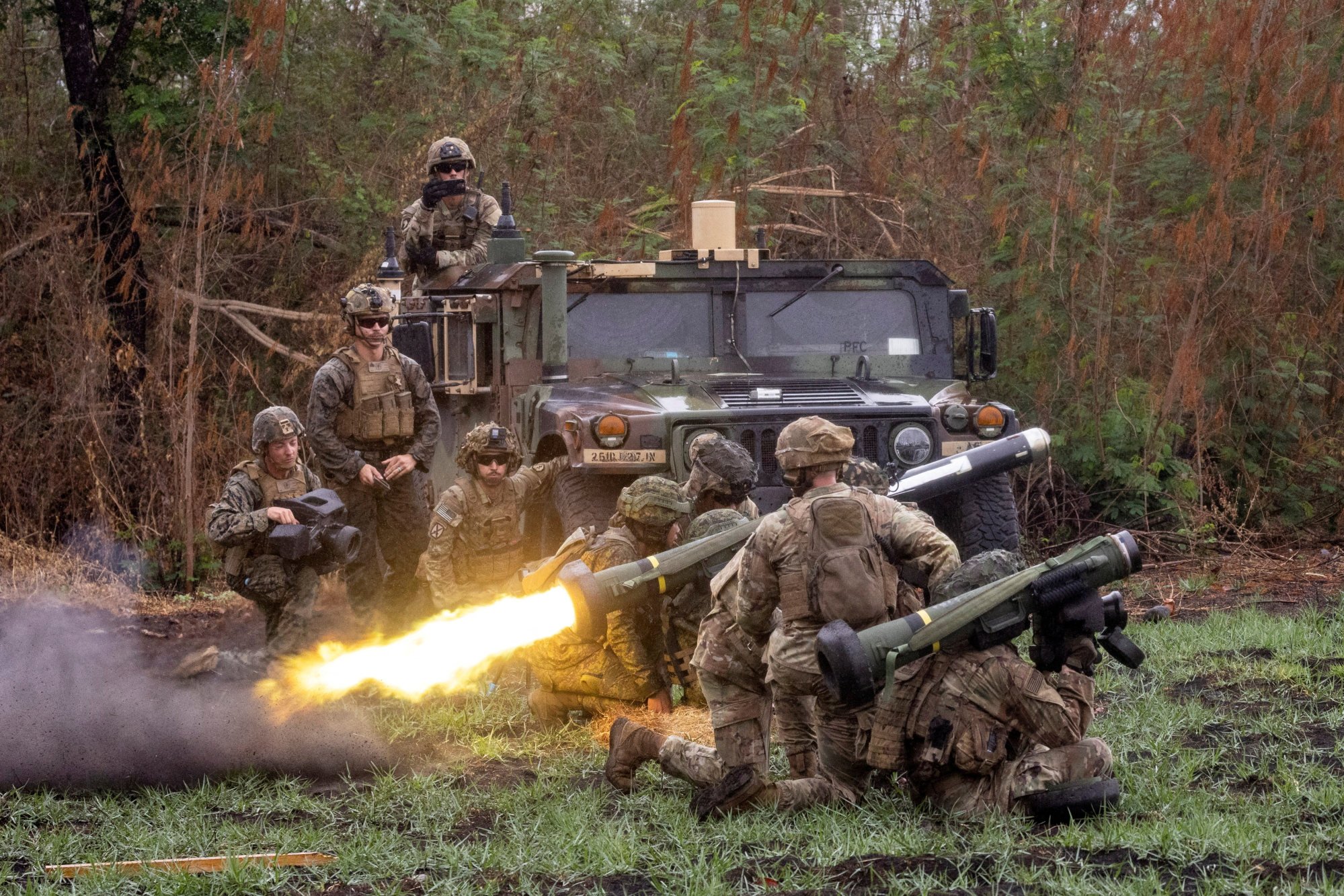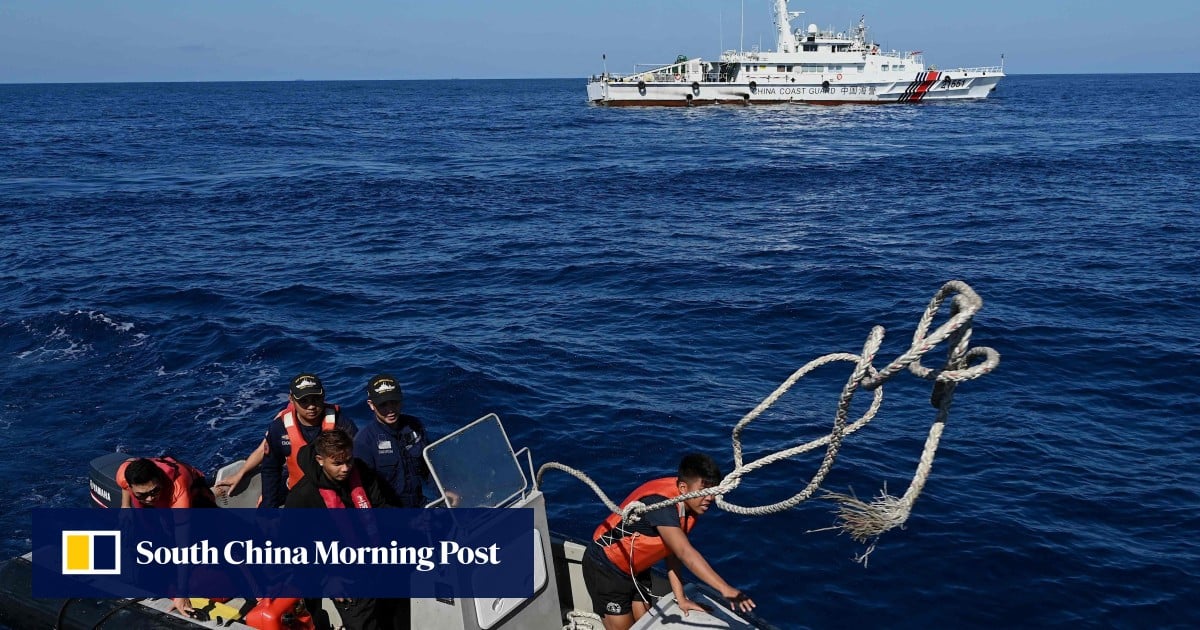The part-time training programme would be held over four academic terms, coinciding with students’ studies. The Philippines already offers an ROTC programme that college students may take as a prerequisite to graduation, but it is not mandatory.
Philippines condemns China’s ‘dangerous’ use of water cannons at its boats
Philippines condemns China’s ‘dangerous’ use of water cannons at its boats
“Is the Philippines ready to defend itself?” Padilla asked his fellow lawmakers when calling for the bill to be passed.
“Given the size of China’s military and reservists, they could walk all over us, urinate on us, and we would drown,” he said.
A survey commissioned by the Philippines’ armed forces and conducted by research firm OCTA in December revealed that 77 per cent of Filipinos said they were willing to fight for their country in the event of a conflict with a foreign enemy.
According to data from June last year, the Philippine military has 150,000 active-duty personnel and around 1.2 million reservists.
The Philippines has had a mandatory ROTC programme in the past, but it was made voluntary through a law passed in 2002, after a student from the University of Santo Tomas was killed by senior ROTC officers for exposing corruption within the programme at the university.

Senator Ronald dela Rosa echoed Padilla’s sentiments when he spoke to reporters last week, saying that the Philippines needed to be prepared to defend itself at all times.
“We cannot have a credible defence if we do not have enough reserves. We cannot produce enough reserves if we do not have the ROTC programme. We’re vulnerable without the ROTC programme,” dela Rosa, a former national police chief, said on March 13.
Opposition senator Risa Hontiveros, however, said pursuing a mandatory ROTC programme was “not the right policy direction” and instead called for efforts to modernise the country’s military.
“I think as the tension in the West Philippine Sea heats up, the most correct course of action for us as the Senate is to continue and judiciously increase support for military modernisation, especially for the Philippine Navy, and adjust other aspects of national defence,” she said on March 11, referring to the part of the South China Sea that falls within the Philippines’ exclusive economic zone.
China, which rejected the arbitral ruling, has condemned the Philippines’ efforts to pass the act, saying Manila “has attempted to further enforce the illegal arbitral award on the South China Sea by domestic legislation”.
Joshua Espeña, vice-president of the International Development and Security Cooperation think tank, said that while a national defence force would work, an ROTC programme that did not add any real value in terms of understanding and training for modern warfare would be unlikely to have a real strategic impact against a large enemy force with sophisticated machinery.
Espeña also highlighted practical concerns, saying that making ROTC mandatory might end up becoming costly to implement, forcing competition for limited resources in the annual defence budget set by lawmakers.

In last year’s Senate hearings, the Philippines’ Department of National Defence projected that implementing the ROTC programme alone would cost 61.2 billion pesos (US$1.09 billion), the bulk of which would be allocated to the estimated 9,000 military personnel needed to carry out the programme in more than 2,000 colleges and universities.
“We must include concerns such as pensions, benefits, and other relevant perks in joining the reserve force,” he said.
According to Espeña, much of the country’s defence budget already goes toward personnel expenses, while capital outlay, maintenance and other operating expenses, such as those incurred to procure new warfare systems and equipment, lag behind.
“[Much of the budget] is understandably concerned with incomes, pensions, and dependency concerns for the regular forces aside from expenditures on training and education,” he said.
“The current reserve force does not receive monthly income, assuming they have day jobs, but the money allocated is for training and education. We must gear our reserves to operate and prevail in modern warfare to optimise the defence budget.”
Is Philippines at front line of ‘WWII-style war’ with China over disputed sea?
Is Philippines at front line of ‘WWII-style war’ with China over disputed sea?
The Philippines needs to look beyond simply adding more numbers to its forces if it wants to strengthen its defence strategy, Espeña argued.
“My view is that defence policy should [focus on] securing a robust force structure of … regular and reserve forces first rather than just building a mass against enemies using untrained, unprofessional conscripts in times of war. We do not have enough population to rebuild a post-war order if we do not use human capital well,” he said.
Despite being its biggest proponent, Padilla is not waiting for the passage of his ROTC bill to recruit more of his countrymen. On March 11, he launched a voluntary Basic Citizen Military Training programme for Senate employees, which has already seen 161 people sign up.


